07 Nov Building Your Change Capability
The status quo is seductive. When we take it for granted, we find ourselves under its spell, often without knowing it. When change comes along we resist it, acting as if life or work as we have known it is our right.
Former US National Security Advisor Colin Powell recalls his reaction when Mikhail Gorbachev advised him that he would need to find a new enemy. Powell didn’t want a new opponent. He had committed twenty-eight years to the one he had. After an initial struggle with his ego, Powell detached from his investment in the Cold War. As Gorbachev’s message sank in he realised not only that America’s relationship with the USSR was in transition, but that the nature of war itself was changing.
Powell predicted a more mobile borderless enemy. Though he tried to prepare the military for this eventuality, Powell struggled against an ingrained organisational inertia.
US defense forces struggled to imagine an enemy without an army. Their weaponry, skills and infrastructure were geared for traditional methods of engagement. On September 11, 2001 the urgency of Powell’s warning sank in.
Whether it works well for us or has its challenges, the status quo is a known entity. For the most part we know how to operate in it. We figure that if we’ve survived so far, we’ll survive into the future.
Our known world brings a level of ease that frees us to concentrate on getting things done. We can deepen our understanding of our work, and enjoy a sense of progress and often mastery there. The status quo offers a resting place in which we carve an understanding of who we are. We find a sense of identity there. So why give it up?
However when we become subservient to the status quo, we can find ourselves in trouble. Before we know it, we’ve institutionalised ourselves in the false security of our comfort zone. We don’t see things changing around us. When it finally does dawn on us, we can wake with a sudden jolt to the need for change.
Here are a few suggestions to help you resist the allure of the status quo:
1. Resist the force of habit
Doing things automatically and without thinking is a great energy saver. It frees us up to concentrate on other things.
However habit can undermine our capacity for innovation. Watch out for telltale signs in yourself and your staff, such as dismissing new ideas before you’ve thought them through, or assuming there’s a best way to do things and you know it.
What habits have you fallen into? What are they good for and what are their limitations? How will you slip the force of habit?
2. Monitor your assumptions
Our ability to notice what is going on around us relies on more than simple observation. Our assumptions act as a filter to our perceptions. They influence the data we look for and the way we interpret it. For instance, US military intelligence was unprepared for any threat by a group without traditional weapons. When our colleagues or circumstances reinforce our core assumptions about ourselves and life, we tend to stop questioning our assumptions, and start regarding them as fact.
Assumptions have a major influence on our individual and collective decision making. Keep an inventory of the assumptions that influence your choices at any point in time. Reflect on and re-assess them.
What are some of the key assumptions underpinning your current work practices?
3. Getting out of our comfort zone
Our comfort zone can be hard to leave. If we’re not careful, its boundaries start to resemble the edges of our known world. When did you last step out of your comfort zone?
What would really stretch you? What are the novel situations you avoid?
4. Remain a learner
It’s easy to become adept at avoiding situations that demand new learning. Whilst we may purport to learn, we’re often simply improvising with our current knowledge and skillset.
Few of us enjoy the experience of conscious incompetence. However embracing it builds our capacity to learn. It prevents the subtle avoidance that comes with not wanting to appear foolish, or being dependent on our own expertise.
In what areas are you a novice? What aspects of your role or life bring out the genuine learner in you?
5. Develop flexibility
If we rely on only one way of doing things, we’ll survive until such time as the environment requires a different approach. Why wait till then, to become more flexible?
Make a program of testing your adaptability. If you tend to be reserved, put yourself out there. If you love risk, put yourself in a highly conservative environment.
Ask yourself: What are the benefits of this approach? How skilled are you at engaging people in this environment? What do you have to offer them? What can they offer you?
6. Stay open to feedback
One of the main ways we can maintain the status quo is to ignore anything that challenges it. Convinced of our own point of view we can easily rebut other perspectives without really engaging with them. We become self-referential, turning the volume down on feedback that presents a different view.
It pays to know how you distance yourself from unwelcome feedback. For instance, do you engage with feedback from customers and clients or do you treat it as an inconvenience, an error of judgement or idiosyncrasy on their part?
What feedback have you taken on board recently? What feedback have you downplayed? What methods do you have for grappling with uncomfortable feedback?
7. Think critically
Many graduate programs and organisational capacity building initiatives emphasise Action Learning in order to build reflection as an integral part of professional practice. It is one of several approaches that assist leaders, managers and teams to systemically learn from their experience.
A critical thinking partner can also be a real asset. They can help you to interrogate your experience with the intention of uncovering the things you might be avoiding. With your permission they can challenge your assumptions, help you to stay open to feedback and to see things that escape your attention.
Reflections
Here are some questions to prompt your own reflection:
Who helps you to think critically about external events and how you engage with your role?
How free do others feel to challenge you? How do you typically react when you are challenged?
How might you authorise someone to play a more active role in helping you to examine and look beyond the status quo?


No Comments